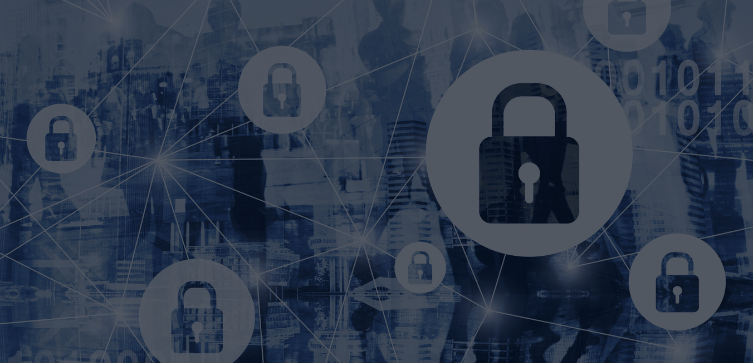Stop Choosing Cyber Security Like You’re Buying Office Supplies.
If you’re picking your cyber security partner the same way you’d select an office supplier, based on feature lists, price tags or who replied quickest to your RFP. You aren't alone.
But here’s the problem: that approach is costing businesses an average of £1.6 million per breach. And when incidents occur, 46% have no security protocol (Source: Microsoft.com) in place, and attacks are more likely to happen.
Why? Because cyber security is treated as a product. Something you buy, deploy and forget.
In reality, it’s a capability. One you build, evolve and rely on every day.
From Feature Lists to Future Readiness
Mid-market businesses often evaluate providers like they’re shopping for software:
- “Does it support XDR?”
- “Is the dashboard user friendly?”
- “How many alerts per day?”
But none of that matters when ransomware hits at 2am.
Real resilience stems from a single question:
“How will this partner help us improve our cyber resilience over the next 12 months and how will we measure that together?”
If the answer is vague, generic or filled with buzzwords, you’re talking to a vendor.
True partners will speak to:
- Measurable outcomes (like reducing MTTR by 30%)
- Baseline assessments (e.g. Microsoft Secure Score)
- Quarterly reviews with board-level reporting
Because real protection isn’t sold, it’s earned.
From Old Thinking to Strategic Mindset
It’s time to upgrade your approach. The way you frame the question defines the quality of the outcome.
|
Old Thinking |
Strategic Thinking |
|
“What does this tool do?” |
“How does this partner strengthen our resilience?” |
|
“Can they detect threats?” |
“Can they detect, prioritise and respond quickly, without overwhelming us?” |
|
“Are they compliant?” |
“Can they keep us compliant as regulations and risks evolve?” |
This shift transforms security from a cost centre into a competitive advantage.
That’s not just protection. That’s progress.
The Most Expensive Mistake: Thinking MDR is All the Same
Many organisations fall into the “like-for-like” trap. They assume all MDR providers deliver the same service – and pick the cheapest.
But here’s what they discover too late:
- No true 24x7 coverage – Some operate on fixed schedules. One financial services firm suffered a ransomware attack overnight. By morning, the damage was done.
- Alerts, not action – Providers flagged issues but didn’t help prioritise or contain them. Internal teams were overwhelmed by noise, missing the real threats.
- No accountability – There were no SLAs, no risk reduction targets, just dashboards filled with unfiltered data.
One client had to rebuild their entire security stack mid-contract. The cost? More than double the original investment.
In cyber security, “like-for-like” doesn’t exist. The depth, responsiveness and capability behind the service matter most.
Alert Fatigue & Data Hostage Models: The Hidden Traps
Even when services seem comparable, these two hidden pitfalls derail progress:
- Alert Fatigue
Excessive notifications. False positives. Poor dashboard tuning. It all adds up to missed threats and overwhelmed teams.
- Data Lock-In
Some MDR providers store your data in proprietary formats, then:
- Charge high fees to export it
- Restrict access to historical logs
- Use non-standard formats that make migration difficult
We’ve seen clients walk away from providers not because they wanted to – but because they had to start over.
At CyberOne, we build on Microsoft tools like Sentinel and Defender. Your data stays in your tenancy. No ransom fees. No lock-in. Just results.
Beyond Monitoring: The Capabilities That Count
Most buyers ask about detection and dashboards. Few ask: “Who’s going to help us when it all goes wrong?”
Strategic partners deliver:
- Digital Forensics & Incident Response (DFIR)
- Security Consultancy & Strategic Cyber Maturity Roadmaps
- Compliance and Risk Advisory
- Architecture Reviews and Modernisation Planning
Professional services and consulting capabilities are where strategic value is unlocked. These engagements ensure your cyber programme aligns to your business priorities and is built for long-term resilience.
A dashboard doesn't help during a breach. Experts and strategic advisors do.
The Multi-Partner Trap
It may seem logical to hire one provider for monitoring, another for incident response, and a third for compliance.
However, when things go wrong, fragmented accountability can become a disaster.
One manufacturing client had three providers. During a ransomware attack, they argued over who was responsible. The delay? 18 hours. The cost? £400,000 in downtime.
When one partner owns detection, response, and recovery, there’s no confusion, just action.
How to Spot a Real Partner
Forget the case studies. Here’s how to verify:
- Ask for anonymised incident reports and MTTR data
- Request a live walkthrough of the SOC
- Interview the actual delivery team, not sales
- Ask references what surprised them after onboarding
And remember, strategic partners don’t just answer your questions, they challenge your assumptions.
The Importance of Industry & Vendor Accreditations
Verification goes deeper than operational metrics. Look for industry-recognised accreditations that demonstrate genuine expertise and rigorous standards.
NCSC (National Cyber Security Centre) certification isn’t just a badge, it’s proof that a partner meets the UK government’s stringent security standards and can handle sensitive, regulated environments.
CREST accreditation validates technical competency in Penetration Testing, Cyber Incident Response and SOC. These aren’t marketing credentials, they require ongoing assessment and demonstrate measurable expertise.
Beyond accreditations, examine vendor-specific expertise. In today’s landscape, Microsoft Security ecosystem knowledge isn’t optional – it’s essential. Partners with advanced Microsoft specialisations understand how to maximise your existing investments whilst building comprehensive protection.
Ask potential partners about their certifications, these demonstrate deep technical capability, not surface-level familiarity.
The difference? Accredited partners with vendor expertise don’t just implement tools – they architect solutions that integrate seamlessly with your existing infrastructure whilst meeting regulatory requirements.
The Partnership Test
Before committing to a long-term relationship, consider starting with a short-term engagement, like a security review.
These aren’t just technical exercises, they are a good audition for the long-term partnership.
Here’s what to watch:
- Decision-Making Culture – Do they engage stakeholders quickly? Who’s in the room for scoping and debriefs?
- Risk Appetite and Maturity – Are they looking for check-the-box results, or are they open to uncovering real gaps and driving long-term improvement?
- Responsiveness and Collaboration – How well do they communicate during the engagement? Are they transparent, proactive and engaged?
The way a partner handles a short-term project is often the best indicator of how they'll perform when the stakes are high.
What Makes It Work: Cultural Alignment
Technology matters. But so does trust. The best security partnerships are built on:
- Clear, jargon-free communication
- Shared commitment to learning and growth
- Cross-functional collaboration from day one
We don’t just plug gaps. We become an extension of your team.
The One Change That Changes Everything
Stop asking, “What can you do for us?”
Start asking, “How will we work together to build resilience?”
That shift reframes cyber security as a partnership, not a product. True cyber security partnerships don’t just plug gaps. They build capability.
When businesses approach partner selection with resilience, collaboration and long-term trust as their Guiding Principles, they don’t just buy protection. They unlock growth, confidence and competitive edge.
Cyber security isn’t just a purchase. It’s a partnership. Choose the right one and it makes all the difference.


